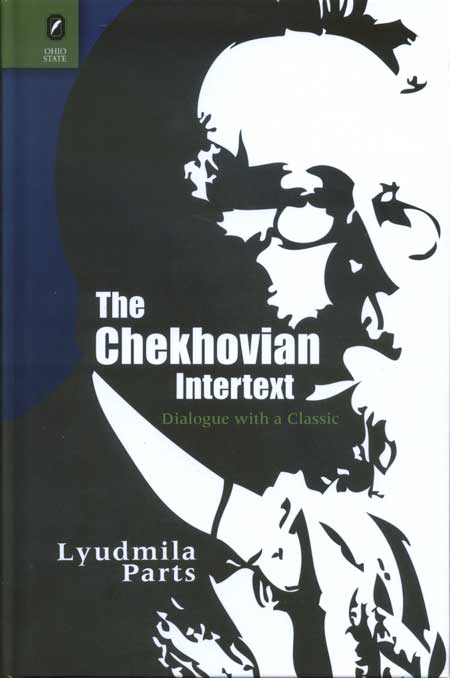The Chekhovian IntertextDialogue with a ClassicLyudmila Parts |
 Mar 2008 Literary criticism/European/Russian & Former Soviet Union 223 pp. 6x9  $69.95 cloth 978-0-8142-1083-3 Add cloth to shopping cart $14.95 CD 978-0-8142-9162-7 Add CD to shopping cart Shopping Cart Instructions Review/Change Shopping Cart & Check-out | |||
|
read excerpts from
the book • |
“Parts’s study is valuable for her expert readings of Chekhov’s works, for her familiarity with and frequent use of Russian cultural critics (many of whose writings are not available in English), and for her thorough integration of theory, biography, literature, and history in crafting a convincing argument as to Chekhov’s place in Russian culture.” —Theatre Survey “Lyudmila Parts has produced a valuable and innovative study that deserves to attract a wide readership.” —Slavic and East European Journal “Anton Chekhov may have died in 1904, but he is very much a twentieth-century cultural figure—continually studied, reacted to, and rewritten. The Chekhovian Intertext is written with a nuanced awareness of that twentieth-century Chekhov, especially in the Russian literature of the past thirty years. Parts’s appreciation and understanding of Chekhov’s influential reputation in Soviet and post-Soviet Russia as well as abroad contribute to the book’s accessibility to all audiences, including the American audience. Parts’s voice is confident and her book well conceived.” —Angela Brintlinger, associate professor of Slavic and East European languages and literatures, The Ohio State University “Lyudmila Parts employs an innovative approach in her discussion of social and literary change. Focusing on texts that until now have not been sufficiently discussed in the field, her book has serious merit.” —Nadya Peterson, associate professor of Russian language and literature, Hunter College, CUNY In The Chekhovian Intertext Lyudmila Parts explores contemporary Russian writers’ intertextual engagement with Chekhov and his myth. She offers a new interpretative framework to explain the role Chekhov and other classics play in constructing and maintaining Russian national identity and the reasons for the surge in the number of intertextual engagements with the classical authors during the cultural crisis in post-perestroika Russia. The book highlights the intersection of three distinct concepts: cultural memory, cultural myth, and intertextuality. It is precisely their interrelation that explains how intertextuality came to function as a defense mechanism of culture, a reaction of cultural memory to the threat of its disintegration. In addition to offering close readings of some of the most significant short stories by contemporary Russian authors and by Chekhov, as a theoretical case study the book sheds light on important processes in contemporary literature: it explores the function of intertextuality in the development of Russian literature, especially post-Soviet literature; it singles out the main themes in contemporary literature, and explains their ties to national cultural myths and to cultural memory. The Chekhovian Intertext may serve as a theoretical model and impetus for examinations of other national literatures from the point of view of the relationship between intertextuality and cultural memory.
| |||


